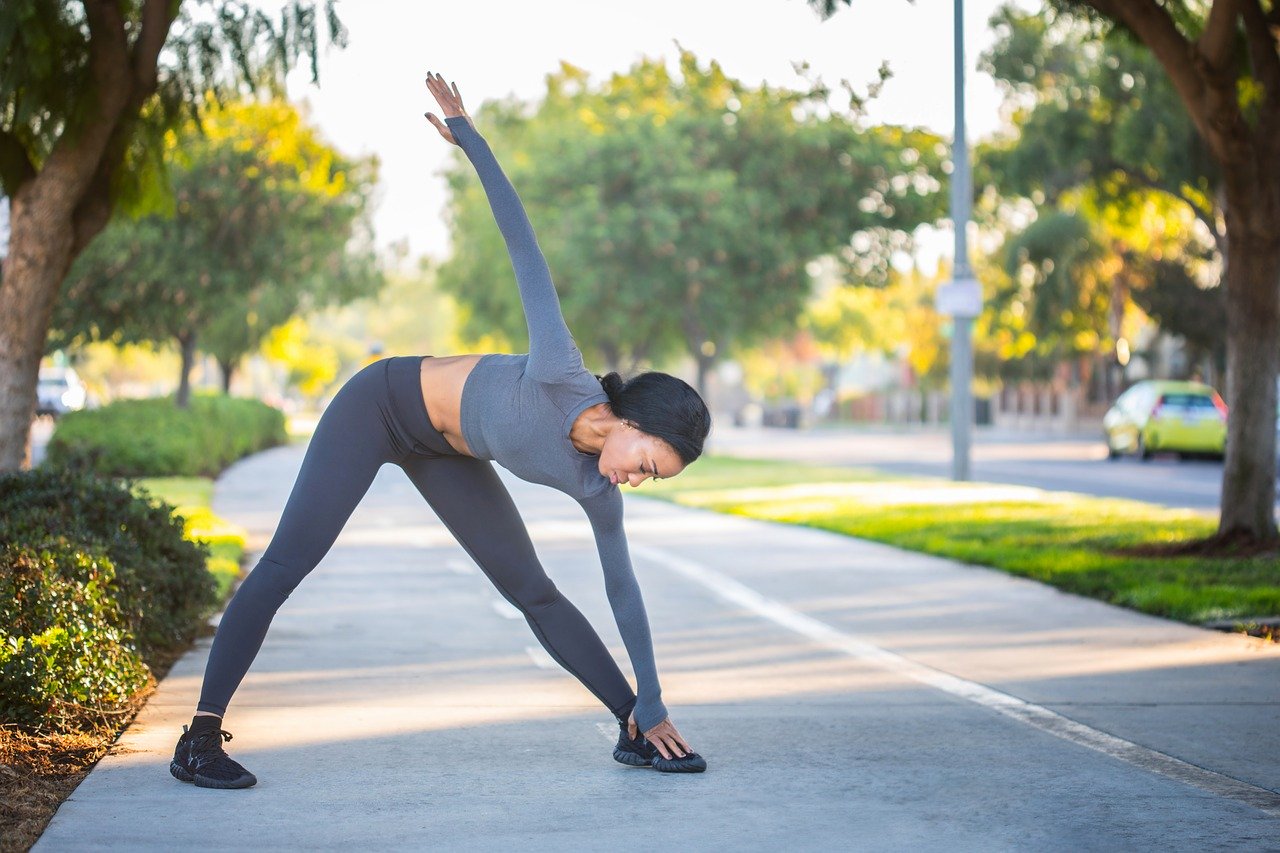Social distancing offers opportunities for personal growth

With the indefinite closing of public facilities like gyms, and the enforced isolation of social distancing caused by the COVID-19 pandemic, many are struggling to maintain their physical and mental well-being. Jennifer Wegmann ’94, MA ’01, PhD ’14, who specializes in the topics of body image and successful stress management, views the daily obstacles created by COVID-19 not intrinsically bad, but rather as learning opportunities for personal growth.
“Let’s reframe this. It’s going to give you practice presenting and talking via Zoom and Skype, which you’re going to have to learn how to do in today’s society anyway,” said Wegmann, a lecturer in Binghamton University’s Division of Health and Wellness Studies.
For anyone struggling with the fallout of COVID-19, physically or mentally, Wegmann has advice to offer from the perspective of a person who has worked in the health and wellness field for more than 20 years.
For those whose workout routines have been interrupted by the temporary suspension of all public gyms, Wegmann recommends getting creative with exercise. She said to stop wishing for your schedule — specifically workouts and training — to remain consistent, and to instead develop a new regimen within the constraints of your household.
“Crisis and adversity inspire innovation and creativity — think outside the box,” Wegmann said. “Download an application like JEFIT. It will help you create workouts based upon your goals and available equipment.”
Jada Diodato, a math major, is one of many students struggling with the newfound online course formatting and the loneliness of social distancing. She expressed the drastic changes enforced upon her life by COVID-19.
“For starters, I no longer have a job or source of income,” said Diodato. “No more in-person classes puts a grey cloud above my whole routine as well. I now have to come to terms with the fact that my mom will never get the chance to watch me graduate from college.” “Pretty much any and everything important in my life has changed drastically from this pandemic,” she said.
However, Diodato recommends looking at the situation from a perspective of gratitude.
“Think of all those times you had so much stuff to do that you couldn’t even think straight, and be thankful for this downtime,” she said. “Keep in daily contact with your family and friends, and keep spirits high!”
Engineering student Lucy Benack expressed similar sentiments, particularly her frustration with the sudden transition to an online classroom setting. She misses seeing her classmates and professors in person. More perturbing to Benack is the sudden awareness that, before social distancing, she considered her social life as something guaranteed.
“All my social interaction now takes place via various social media platforms, which has made me realize how many aspects of my life I took for granted, such as my classmates, friends and clubs I’m in,” she added.
Since the advent of social distancing, Benack has spent time with her parents, mostly playing board games and going for walks. For those tired of confinement indoors, Benack recommends getting out into the fresh air.
For some students, like English major Rhianna Henson, this crisis exacerbates previous struggles with anxiety.
“I already struggled with anxiety before all of this began, and now it has increased tenfold,” Henson said. “It’s been difficult to focus on my classes and homework — finding motivation has been really hard.”
To deal with this anxiety, Henson has kept herself busy as much as possible, such as keeping her house clean and watching movies with her boyfriend.
“Doing things you consider fun or relaxing, going outside — these little things can keep you from feeling stir-crazy,” Henson said.
While everything around us is changing, or getting taken away, Wegmann emphasizes the importance of clearing your headspace of what your life was like in the past, or what it may be like in the future.
“It takes a lot of energy and personal resources to live in the past, and it tunnels our vision so we can’t see what is here and now,” she said. “Many people are trying to predict the future — that’s impossible.”
“Fixating on what’s ahead creates fear and anxiety. The more mindful we are, the more in the moment we live,” Wegmann added.
Lastly, even in a time of physical isolation, Wegmann highlights the importance of talking about your feelings.
“Take the time to communicate to others how you are feeling,” she said. “Research has shown over and over again that connecting socially is one of the most effective ways to manage stress and anxiety.
“And yes, this holds true even when you connect over [applications] like FaceTime, Zoom and Facebook Messenger,” Wegmann said. “Invite people into your life to share this experience with you.”

